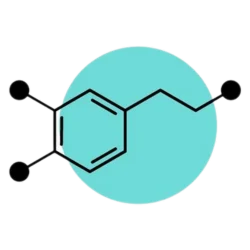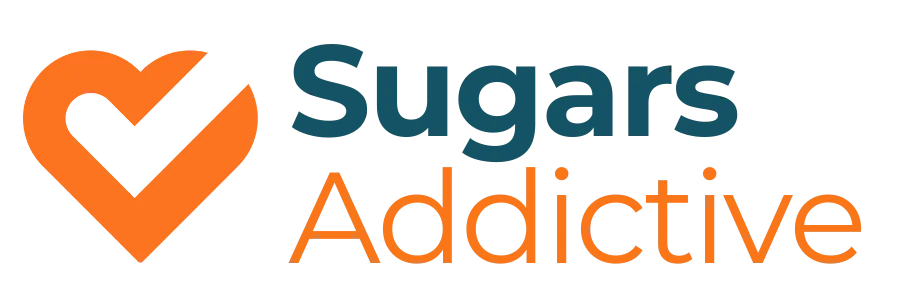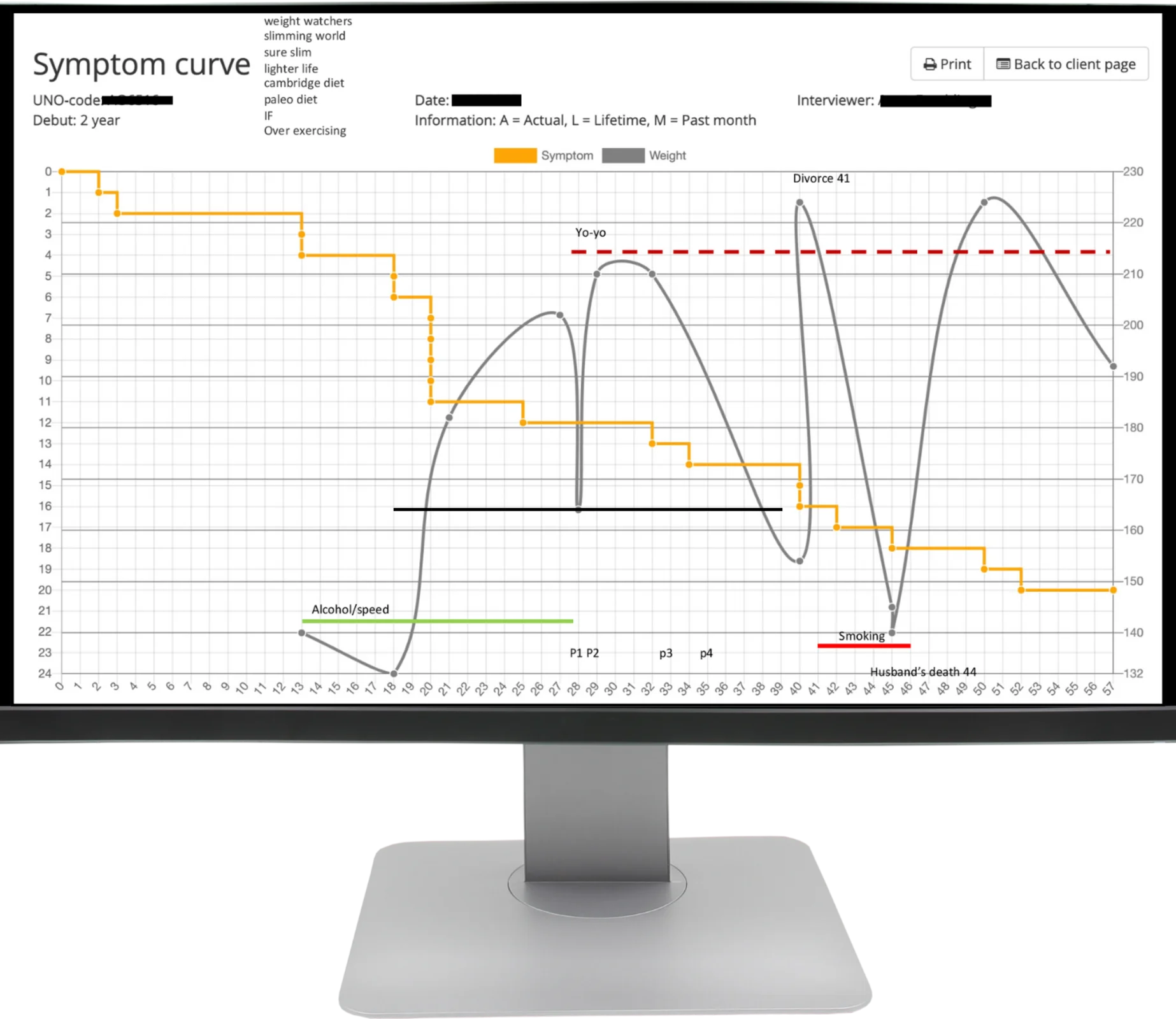Sugar Addiction and Obesity
How the Addictive Nature of Ultra-processed, sugary foods Parallels a Drug Addiction: a brief survey and summary of science based food addiction facts.
The term sugar addiction often stirs up a storm of debates among scientists and health enthusiasts. While some firmly acknowledge its existence, others dismiss it as a mere media hype. But recent scientific studies shed new light on this moot point, revealing startling parallels between sugar consumption and drug addiction. Remember tobacco! it wasn’t until the 1970’s that health scientists began to recognise the addictive nature of nicotine, with cigarette manufacturers still in denial as recent as 1994.
Food Addiction Facts
10 Facts About Food Addiction seeks to dispel myths and explore the conceptualisation of food addiction (linked to sugar), its mechanisms, and implications on human health.
Understanding Sugar Addiction: The Basis
Food addiction, more accurately referred to as sugar addiction herein, in essence, refers to a compulsive craving for ultra-processed, sweet, sugary foods or drinks, driven by the brain’s reward system. In understanding the many sources of sugar in within our foods, it is important to consider that starchy savoury foods such as; breads, pastries and pasta are also significant source of sugar ingestion. Sugars addictive nature is akin to substance abuse disorders, where individuals compulsively seek the drug despite knowing its harmful consequences.
Therein, you may noticed our rather deliberate mistake in titling this article; Food Addiction Facts. However, this in in no means a mistake, in effort to reach as many affected individuals as we possible we made the decision to choose terminoligy and language commonly understood. And so, to clarify, we acknowledge that food as a general term is not addictive, whereas ultra-processed food is where the issue lies.
The Dopamine Connection

Just like addictive drugs such as cocaine, sugar is also known to stimulate the release of dopamine, a neurotransmitter associated with pleasure and reward. The euphoric “high” from consuming sugar reinforces the behaviour, leading to repeated consumption. Navigating the intricate relationship between sugar and dopamine in our brains is not only fascinating but also paramount in understanding the broader impacts on our health and well-being.
The connection between sugar and dopamine, while initially beneficial, can lead to metabolic dysfunction, feeding into the obesity epidemic, and fostering compulsive eating behaviors.
As such, the feel good hormone (dopamine) plays a pivotal role in our brain’s reward system. The human brain has evolved to reinforce behaviors essential for survival, such as eating and mating. When we engage in such activities, dopamine is released, producing feelings of pleasure and motivating us to repeat these actions. The mesolimbic pathway, primarily involving the ventral tegmental area (VTA) and the nucleus accumbens (NAc), is central to these reward processes. It’s activated by rewarding stimuli, which can range from natural rewards like food to addictive drugs, enhancing the release of dopamine in targeted brain regions – food addiction fact!
Initially, sugar consumption leads to a surge in dopamine, enhancing feelings of pleasure. However, with repeated exposure, the brain’s response adapates, diminishing the dopamine response to sugar. This necessitates increased sugar consumption to achieve the former levels of satisfaction. Long-term, excessive sugar intake can alter dopamine receptor availability and gene expression, affecting the brain’s reward system. This biochemical change not only reinforces sugar addiction but also impacts cognitive functions such as memory and learning, linking high sugar diets to cognitive deficits.
The Role of Opioids
Similar to drug addiction, sugar consumption also triggers the opioid system, contributing to the addictive potential. The system is associated with the perception of pleasure, pain, and reward. Opioid antagonists, drugs that block opioid receptors, have been shown to reduce sugar consumption, indicating a strong opioid-sugar connection.
The Sugar-Drug Analogy
The analogy between addictive drugs and hyper-palatable foods, notably those high in added sugar, is a fascinating area of research. Studies suggest that sugar and sweetness can induce reward and cravings comparable in magnitude to those induced by addictive drugs.
The behavioral patterns observed in sugar consumption are strikingly similar to those seen with drugs of abuse. Rats on intermittent sugar access display behaviors like increased intake and withdrawal symptoms, including anxiety and somatic signs when food is withheld. This compulsive eating behavior is indicative of an addiction, where the substance—in this case, sugar—becomes increasingly necessary to stimulate the same pleasurable response. Furthermore, sugar-dependent rats exhibited increased alcohol intake after sugar abstinence, suggesting sugar as a potential gateway to other addictive substances.
Substitution and Reward
Interestingly, sugar and sweet reward can not only substitute addictive drugs like cocaine, but they can even be more rewarding and attractive. This phenomenon could be traced back to our evolutionary past, where seeking high-sugar foods was crucial for survival.
The Neurobiological Perspective
At the neurobiological level, the neural substrates of sugar and sweet reward appear to be more robust than those of cocaine. This robustness could explain why many individuals find it challenging to control their sugar consumption when continuously exposed to it.
Sugar, Binge Eating and Anxiety
Research indicates that bingeing on sugar could lead to psychological distress, such as anxiety. This is particularly evident in rats that had consumed sugar and subjected to a period of fast (abstinence). These animals displayed anxiety-like behaviour, suggesting a state of withdrawal similar to opiate withdrawal.
Accumbens Dopamine and Acetylcholine Imbalance
Along with anxiety, fasting after sugar consumption led to alterations in the balance of dopamine and acetylcholine in the nucleus accumbens, a subcortical brain structure located within the ventral striatum, known as the brains pleasure and reward centre. This imbalance is a contributing factor to the anxiety observed during sugar withdrawal.
Sugar Addiction: A Factor in Eating Disorders?
The findings discussed so far suggest that a diet associated to the over consumption of sugar followed by fasting can create a state that involves anxiety and altered dopamine/acetylcholine balance in the brain. This state is similar to the effects of opiate withdrawal, suggesting that sugar addiction could potentially be a factor in some eating disorders.
The Evidence: Keynote Studies
Several studies have shed light on sugars addictive nature. Here, we delve into some of the key findings.
Sugar and Dopamine Release
A study reported that daily bingeing on sugar repeatedly releases dopamine in the nucleus accumbens. This repeated dopamine release is a hallmark of many addictive substances, suggesting a similar mechanism in sugar addiction.
High-Fat Diet and Sugar Addiction
Another study explored the impact of a high-fat high-sugar diet on sugar addiction. The research indicated that a high-fat diet weakens the prefrontal cortical control of activity in the nucleus accumbens, an area involved in reward and pleasure. This weakened control could potentially enhance the addictive potential of sugar.
Sugar Addiction and Obesity
Research also suggests a link between sugar addiction and obesity. Over-consumption of sugar, leading to sugar addiction, could potentially contribute to the development and maintenance of obesity.
Sugar Addiction: The Consequences
The consequences of sugar addiction extend beyond weight gain and obesity. It can also lead to a range of health issues, including diabetes, heart disease, mental health issues including anxiety and depression and even neurological problems. It’s essential, therefore, to recognise and address sugar addiction to prevent these health complications.
The Role of Nutrition Education
Edcation about the potential harm of excessive sugar consumption and the concept of sugar addiction plays a crucial role in its prevention and management of the disease. See our Food Addiction Services for more information and details of how Sugars Addictive can support you.
Overcoming sugar addiction may not be an easy task, but it’s certainly achievable. For the sugar addict, seeking professional help and formal diagnosis is crucial for sustainable change and long term recovery. Rest assured, all Sugars Addictive services are aligned to the latest scientific, clinical insight and personal experience to illuminate your path towards a truly sustainable recovery
The Need for Further Research
While existing research provides valuable insights into sugar addiction, more studies are needed to fully understand this complex issue. In part 2 of Food Addiction Facts we’ll explore the neuro-biological mechanisms underlying sugar addiction and its long-term health effects.
Conclusion:
Sugar addiction is a complex but significant health issue. Drawing parallels with drug addiction, it poses a considerable challenge to public health. Recognising and addressing sugar addiction is critical to prevent associated health complications and improve overall well-being and taking personal action is the best way to empower recovery, personal growth and ultimate transformation.
Find someone who can ask you the right questions about your addiction. So often we can feel caught in the mire of shame and guilt around our inability to control our cravings and the urge to consume despite our total recognition of the harmful consequences of doing so. The truth is there is no shame in being a sugar addict. In truth, developing this chronic, progressive primary disease was never our fault but it is our responsibility to move our whole selves into recovery, one day at a time.
References:
- Food Addiction Facts – written and validated according to the following technical publications:
1. Ahmed, S. H., Guillem, K., & Vandaele, Y. (2013). Sugar addiction: pushing the drug-sugar analogy to the limit. Current Opinion in Clinical Nutrition & Metabolic Care, 16(4), 434–439. https://doi.org/10.1097/mco.0b013e328361c8b8
2. Avena, N. M., Bocarsly, M. E., Rada, P., Kim, A., & Hoebel, B. G. (2008). After daily bingeing on a sucrose solution, food deprivation induces anxiety and accumbens dopamine/acetylcholine imbalance. Physiology & Behavior, 94(3), 309–315. https://doi.org/10.1016/j.physbeh.2008.01.008
3. Rada, P., Avena, N. M., & Hoebel, B. G. (2005). Daily bingeing on sugar repeatedly releases dopamine in the accumbens shell. Neuroscience, 134(3), 737–744. https://doi.org/10.1016/j.neuroscience.2005.04.043
4. Morgan, C., Sáez-Briones, P., Barra, R., Reyes, A., Zepeda-Morales, K., Constandil, L., … & Hernández, A. (2022). Prefrontal Cortical Control of Activity in Nucleus Accumbens Core Is Weakened by High-Fat Diet and Prevented by Co-Treatment with N-Acetylcysteine: Implications for the Development of Obesity. International Journal of Molecular Sciences, 23(17), 10089. https://doi.org/10.3390/ijms231710089
5. Witek, K., Wydra, K., & Filip, M. (2022). A High-Sugar Diet Consumption, Metabolism and Health Impacts with a Focus on the Development of Substance Use Disorder: A Narrative Review. Nutrients, 14(14), 2940. https://doi.org/10.3390/nu14142940
6. Lustig, R. H. (2013). Fructose: it’s “alcohol without the buzz”. Advances in Nutrition, 4(2), 226–235. https://doi.org/10.3945/an.112.002998
7. Benton, D. (2010). The plausibility of sugar addiction and its role in obesity and eating disorders. Clinical Nutrition, 29(3), 288–303. https://doi.org/10.1016/j.clnu.2009.12.001
8. Santana, I. P., Scapin, T., Rodrigues, V. M., Bernardo, G. L., Uggioni, P. L., & Proença, R. P. D. C. (2022). University Students’ Knowledge and Perceptions About Concepts, Recommendations, and Health Effects of Added Sugars. Frontiers in Nutrition, 9(896895). https://doi.org/10.3389/fnut.2022.896895
9. Westwater, M. L., Fletcher, P. C., & Ziauddeen, H. (2016). Sugar addiction: the state of the science. European Journal of Nutrition, 55(Suppl 2), 55–69. https://doi.org/10.1007/s00394-016-1229-6





